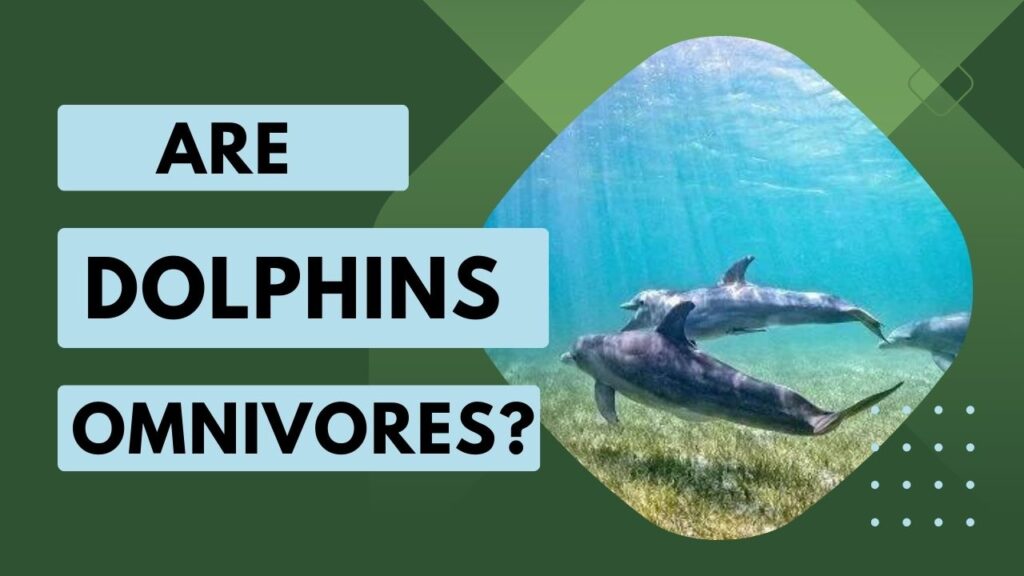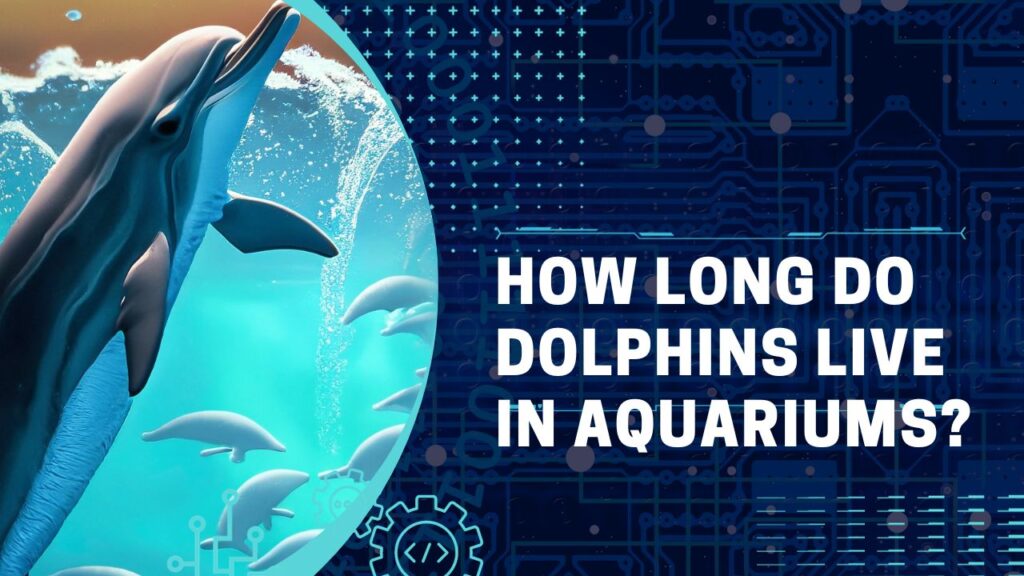Last updated on January 28th, 2024 at 10:35 am

Dear readers, I hope you well. As a dolphin enthusiast, the strange activities of dolphins fascinate both of us, right?
Today I will talk about another peculiar thing about dolphins are dolphins omnivores or carnivores.
Here I will explain what really, they eat, are they plant lovers or meat? So, let’s get started.
Table of Contents
- 1 Understanding Dolphin Anatomy and Physiology
- 2 Examining Dolphin Feeding Behavior
- 3 Exploring Dolphin Diet Diversity
- 4 Are Dolphins Omnivores?
- 5 Are Dolphins Omnivores, Carnivores, or Herbivores?
- 6 Are River Dolphins Omnivores?
- 7 Are Dolphins Top Carnivores?
- 8 Are Dolphins Obligate Carnivores?
- 9 Frequently Asked Questions (FAQs)
- 10 Conclusion
Understanding Dolphin Anatomy and Physiology
Dolphins are highly adapted sea creatures that are distinguished by their streamlined bodies and forms.
Understanding their eating patterns, especially whether or not they are omnivores, requires an understanding of their anatomy and physiology.
The fusiform body shape that dolphins normally have helps them swim through the water with less drag. Their smooth skin is also coated in an oily coating that reduces friction and enhances hydrodynamics.
The teeth of dolphins are among their most distinctive anatomical traits. Dolphins’ conical-shaped teeth are not meant for chewing, but rather for catching and hanging onto prey.
This tooth configuration is ideal for ensnaring and devouring a wide variety of animals in its native habitat. [Are Dolphins Omnivores?]
In addition, dolphins’ simpler digestive systems than those of terrestrial animals are a reflection of their carnivorous inclinations.
Examining Dolphin Feeding Behavior
The feeding behavior of dolphins provides important information about their eating habits and preferences.
Dolphins are renowned for their intellect and intricate social structures, which have an impact on how they eat.
Depending on the nature, location, and size of the prey group, they use a variety of hunting and capture strategies.
Dolphins frequently engage in cooperative hunting, which involves groups of animals collaborating to catch and capture prey. By working together, they can target larger prey species and increase their hunting success.
Additionally, dolphins have individual hunting strategies including strand feeding, in which they deliberately beach themselves in order to capture fish in shallow waters.
Dolphins also exhibit opportunistic eating behavior, making use of the food sources in their surroundings. This could involve searching for a variety of prey items by foraging or scavenging for carrion.
Through the study of feeding behavior, researchers can learn a great deal about the flexibility and adaptation of dolphin diets. [Are Dolphins Omnivores?]
Exploring Dolphin Diet Diversity
Dolphins are mostly carnivorous, but they also have a very diverse diet. According to studies, the availability of prey, habitat type, and geographic location can all have a big impact on dolphin diets.
Certain dolphin species eat mostly fish, but other species may also eat crabs, cephalopods, and even plants.
Seasonal and environmental factors also influence the range of diets consumed by dolphins. For instance, during migration or in reaction to temperature fluctuations in the water, dolphins living in coastal locations may hunt for various prey species.
Furthermore, human-caused variables like pollution and overfishing can affect the amount of prey available, which in turn affects dolphins’ eating preferences.
Comprehending the diversity of dolphin diets is crucial for managing ecosystems and promoting conservation efforts. [Are Dolphins Omnivores?]
Researchers can determine possible risks to dolphin populations and evaluate the condition of marine ecosystems by examining the feeding preferences of dolphins in various populations and environments.
Furthermore, knowledge of dolphin eating patterns can help develop conservation plans that safeguard the ecosystems and natural resources of their prey.
Are Dolphins Omnivores?
Dolphins are not omnivores, at all. They are carnivores and their only food source is meat.
They mostly eat fish and squid, but they occasionally consume other marine creatures. Including crustaceans, jellyfish, and cephalopods.
Conversely, omnivores consume a wide range of dishes, including both plants and animals. Dolphins cannot be classified as omnivores since they lack the digestive tract required to break down plant material.
Despite being carnivores, dolphins have a variety of diets based on their species, their habitat, and their food sources. Certain dolphin species, for instance, only consume a specific kind of fish.
On the other hand, other dolphin species eat a wider variety of seafood. Dolphins can also modify their diet in response to a lack of their regular food source.
As apex predators, dolphins are vital to maintain marine ecosystems. This indicates that they contribute to regulating the equilibrium of the ecosystem and control the numbers of their prey species. [Are Dolphins Omnivores?]
Are Dolphins Omnivores, Carnivores, or Herbivores?
Another much-asked question is whether are dolphins omnivores, carnivores, or herbivores. The answer is Dolphins are mainly considered carnivores because fish and other aquatic animals comprise the majority of their diet.
Several fish, squid, and crab species are among their preferred prey items. They have evolved their hunting techniques and strong teeth to catch and eat these marine animals.
Although most dolphin species are carnivorous, some occasionally engage in omnivore behavior.
They have been seen consuming algae and seagrass, for example, particularly when their typical food source is in short supply.
These occurrences, however uncommon, aren’t sufficient to classify dolphins as real omnivores.
See Also: Do Dolphins Eat Vegetables? How Dolphins and Vegetables Collide
Are River Dolphins Omnivores?
No, dolphins in rivers are not omnivores. Much like all other dolphins and whales, they are carnivores.
Fish provide the majority of their diet, but they occasionally consume other aquatic creatures including shrimp, crabs, and crustaceans.
The conical-shaped teeth of river dolphins are not made to crush plant material, but rather to grasp and retain animal prey.
They have a unique digestive mechanism designed specifically to break down meat.

Are Dolphins Top Carnivores?
Dolphins are frequently the top predators in their aquatic environments. Because of their skill at hunting, they are able to regulate the numbers of their prey, maintaining a healthy food chain.
As apex predators, they maintain the general health of the marine ecosystem they live in and assist in controlling the number of lesser fish.
See Also: Do Dolphins Eat Seaweed? From Fish to Flora
Are Dolphins Obligate Carnivores?
Species classified as obligatory carnivores are those whose main source of nourishment is animal-based food.
Dolphins have a strong affinity for flesh and foods produced from animals, even though they are not strictly speaking obligate carnivores.
They are well-suited for a carnivorous existence because their digestive systems are designed to consume animal proteins and lipids effectively.
Frequently Asked Questions (FAQs)
Do Dolphins Eat Plants?
Although they are mainly carnivorous, dolphins occasionally eat tiny amounts of plant material. This includes algae or seagrass when their main food source is limited availability.
Can Dolphins Adapt To Different Diets?
Dolphins have a reputation for being adaptive, thus they might modify their diets as needed, but they always favor a meat-based diet.
Are There Any Vegetarian Dolphins?
There are no species of dolphins that are exclusively herbivorous or vegetarian. Their main source of sustenance is food derived from animals.
Conclusion
Today I have answered the question are dolphins omnivores. So, we got the answer clearly that dolphins are not omnivores, rather they are carnivores.
They love to eat meat instead of plant-based materials. Moreover, we have come to know that dolphins are apex predators hence they maintain marine ecosystems.

Mr. Das, a certified pharmaceutical scientist, holds a Bachelor of Science in Pharmaceutical Sciences and passionately contributes to dolphin conservation as a member of the committee in Bangladesh.


